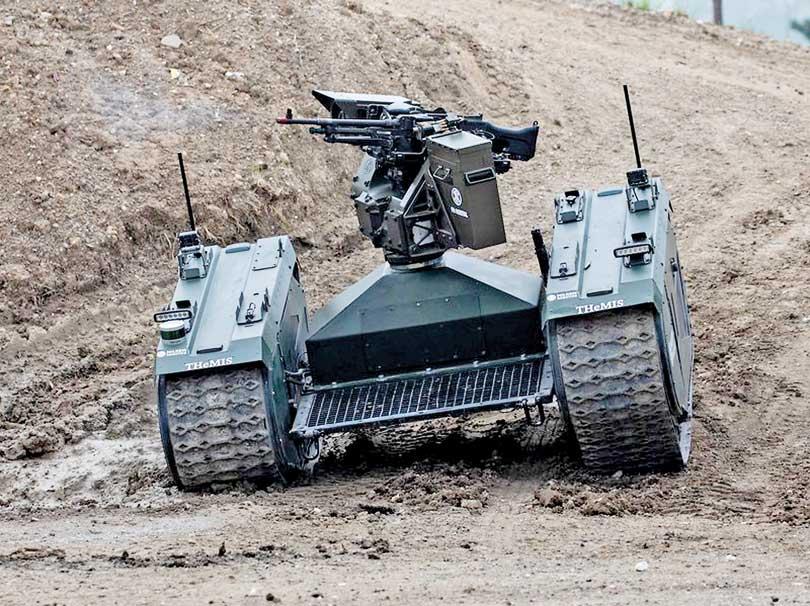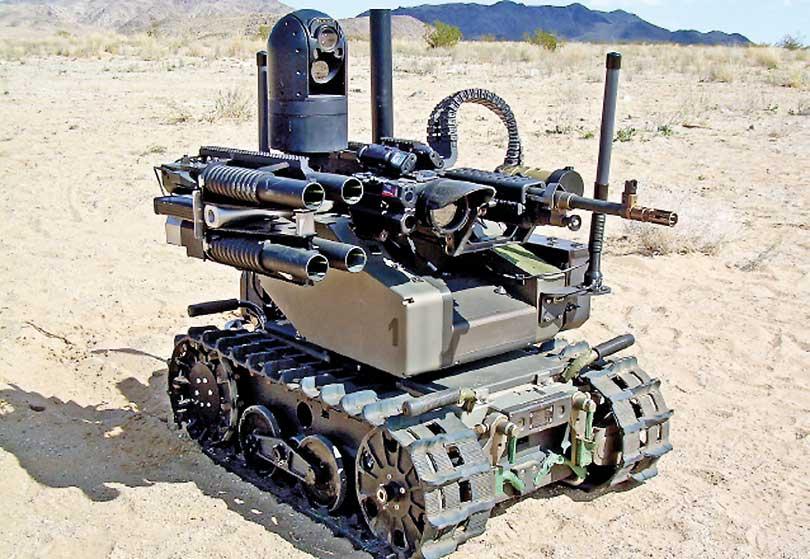Reply To:
Name - Reply Comment

 Technology plays a vital role in modern warfare. Developments in the field have often been used to advance military strategy and are competitively sought after. While the contribution made by the development of technology is undeniable, we have however come to a crossroad: do we pause and exercise collective restraint in the development of weapons in the understanding that all means of using force must be able to comply with human rights, humanitarian and ethical standards? Or do we allow the development of technology to continue untramelled; unchecked by legal standards and ethics, and bringing with it disastrous consequences of war?
Technology plays a vital role in modern warfare. Developments in the field have often been used to advance military strategy and are competitively sought after. While the contribution made by the development of technology is undeniable, we have however come to a crossroad: do we pause and exercise collective restraint in the development of weapons in the understanding that all means of using force must be able to comply with human rights, humanitarian and ethical standards? Or do we allow the development of technology to continue untramelled; unchecked by legal standards and ethics, and bringing with it disastrous consequences of war?
Advancements in technology have already led to elements of automation being incorporated in machines and weaponry. The potential of removing meaningful human control from the decision making loop however, thus rendering a weapon autonomous in operation, brings with it several alarming concerns. Autonomous Weapons, also known as killer robots, refer to weapon systems which do not include meaningful human control as a necessary pre-requisite in key functions of decision making cycles such as target selection and engagement.
Allowing a weapons’ system to control crucial stages in the targeting cycle, without meaningful intervention by humans, crosses ethical and moral lines. Decisions of life and death will be reduced to numerical computations and placed in the trust of machines that do not possess the inherently human abilities to reason, empathise and exercise compassion. The distancing of the human from a decision to engage in violence, will also be likely to simultaneously reduce the moral burden that would otherwise accompany decisions of violence undertaken by humans themselves, thereby carrying with it the danger of reducing the threshold to enter into war.

The development and use of autonomous weapons also stands contrary to established principles of humanitarian and human rights law. In warfare, machines devoid of meaningful human control are unlikely to be able to distinguish accurately between civilians and combatants in the midst of the complex scenarios of a battle: those scenarios that often prove to be the subject of intense debate even amongst experts in a climate far removed from that of battle. This, combined with the machine’s mathematical understanding of the value of human life, could also result in a skewed estimation of what constitutes a proportionate attack within the permitted scope of humanitarian law. During peacetime the possible use of autonomous weapons, whether in law enforcement or otherwise, carries with it several human rights concerns. The lack of human intervention increases the chances of arbitrary deprivation of the right to life while the difficulty in achieving accountability would also interfere with an effective right to remedy. A tenuous link to accountability could also result in callous decisions to use these weapons which already inherently struggle with complying with humanitarian and human rights standards.
The concerns surrounding autonomous weapons are evident. Production and use of such weapons could begin an arms race and would only amount to opening Pandora’s Box. Regulation consequent to the production and use of these weapons therefore would be too late and unsuccessful. A pre-emptive ban is necessary and must be pursued immediately. As discussions progress, albeit slowly, in the United Nations CCW Forum, there is a sense of urgency in the need for action not just by States on international and regional platforms but also by all relevant stakeholders including, but not limited to, the legal and tech communities.
The concerns surrounding autonomous weapons are evident. Production and use of such weapons could begin an arms race and would only amount to opening Pandora’s Box.
The Sri Lanka Campaign to Stop Killer Robots presents a panel discussion titled ‘Autonomous Weapons Systems - A Discussion on the Implications of Killer Robots’ on the 2nd of August, from 3.30 p.m. onwards at the Sri Lanka Foundation.
The discussion covers the technological, legal and ethical aspects of this conversation. Register via: https://tinyurl.com/y4ux3d52